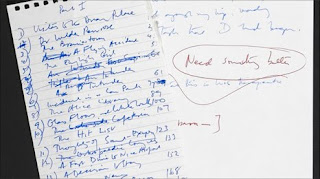 I was fortunate enough to be given the opportunity to interview the author of Freeing Grace (see my rave review), by her publishers in New Zealand, Allen & Unwin. Here are my question (in blue) and Charity Norman's great responses:
I was fortunate enough to be given the opportunity to interview the author of Freeing Grace (see my rave review), by her publishers in New Zealand, Allen & Unwin. Here are my question (in blue) and Charity Norman's great responses:A lifelong ambition. I don’t remember a time when a blank page didn’t make me want to scribble words all over it. Growing up, my greatest heroes were authors. Whilst working I had a growing awareness that if I really wanted to succeed as a writer, I had to make some choices. I loved my job, and it wasn’t an easy decision to move on from it. The impetus for the career change – the final push off the edge of that diving-board - was the realisation of how much of my children’s early years I was missing.
2. Your writing is characterised by a crispness that indicates you spend a lot of time polishing your sentences. Do you keep office hours, and how many words constitute a good writing day?
Routine has never been my strong point! I try to keep regular hours, starting with that blissful moment when the last child finds his socks and piano music and peddles off to school. But I often write at weekends and until the early hours of the morning, because the school day is just too short and prone to interruption.
I’d guess about two thousand words would constitute a very good writing day. Occasionally, I have begun in the morning by deleting much of what I wrote the day before. This can be heartbreaking but, for me at least, it pays to be merciless.
3. The naming of your characters intrigued me, especially when the baby's name, Grace, resonated so with your own, Charity. Did you find naming characters easy, or did it take time to pin down the right name for each one?
It took me time. It still does. Some names just don’t sound right, and the character seems to be shrugging them off. So I give them new ones until they are happy.
4. Your characters are remarkably vivid. Did any of them come to life, and try to take over the book?
All the major characters had a go at upstaging the others, at one time or another. Jake was the most persistent, though. He wouldn’t take a back seat. And when the book was finally finished, I missed him.
5. Dialogue is an important part of your book. Do you have any tricks for picking up natural-sounding conversation, such as listening to strangers gossiping in buses?
I try to listen constantly – and yes, occasionally that means eavesdropping. I especially keep an ear out for those little exaggerations and euphemisms which give language its life and bounce.
6. I was very amused that Jake Kelly, the "voice" of much of your book, was able to snooze comfortably in coach class, but couldn't settle down in the comparative luxury of business class. While this was written to emphasise his disturbed state of mind, I couldn't help wondering if you have any tips for long flights.
Ah, now this is a subject close to my heart. If humanly possible, go online the day before and pick an aisle seat. Then you can pop up and down like a jack-in-the-box without clambering all over a row of people.
I take my own headset too, because for me a long-haul flight is a welcome opportunity to watch all those films that I’ve missed. Over twenty-four hours, that’s a lot of films. I’ve been known to sit spellbound in front of The Bridges of Madison County, tears coursing down my face, oblivious to the poor cabin crew who were trying to ask whether I wanted the lamb or the fish.
THANK YOU YOUR TIME, CHARITY! I REALLY APPRECIATE IT.
Freeing Grace will appear in New Zealand bookstores in July.
5:43 PM | 0
comments






























